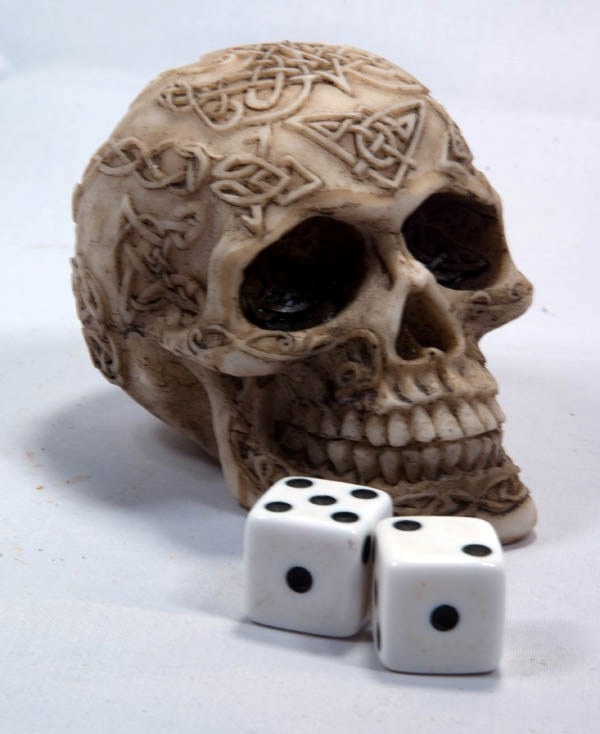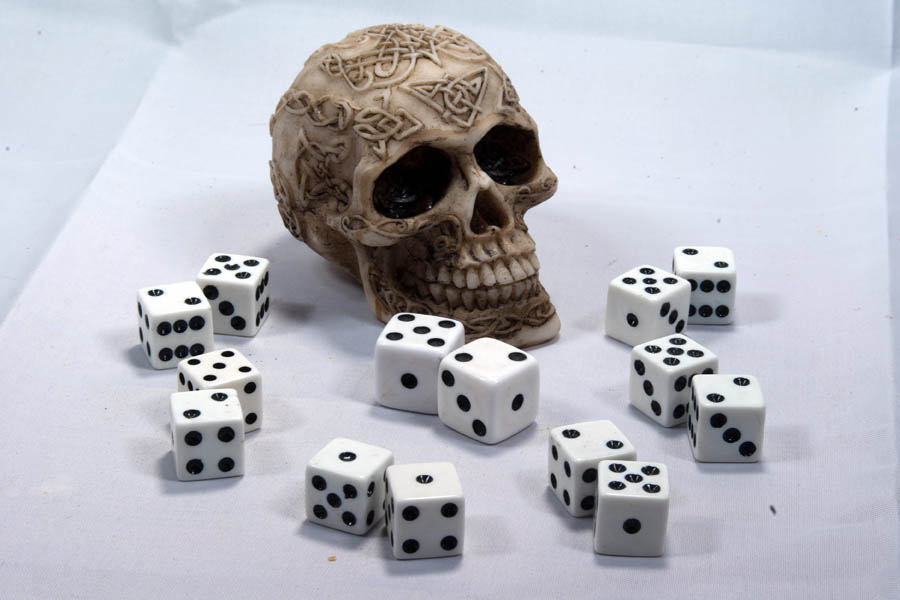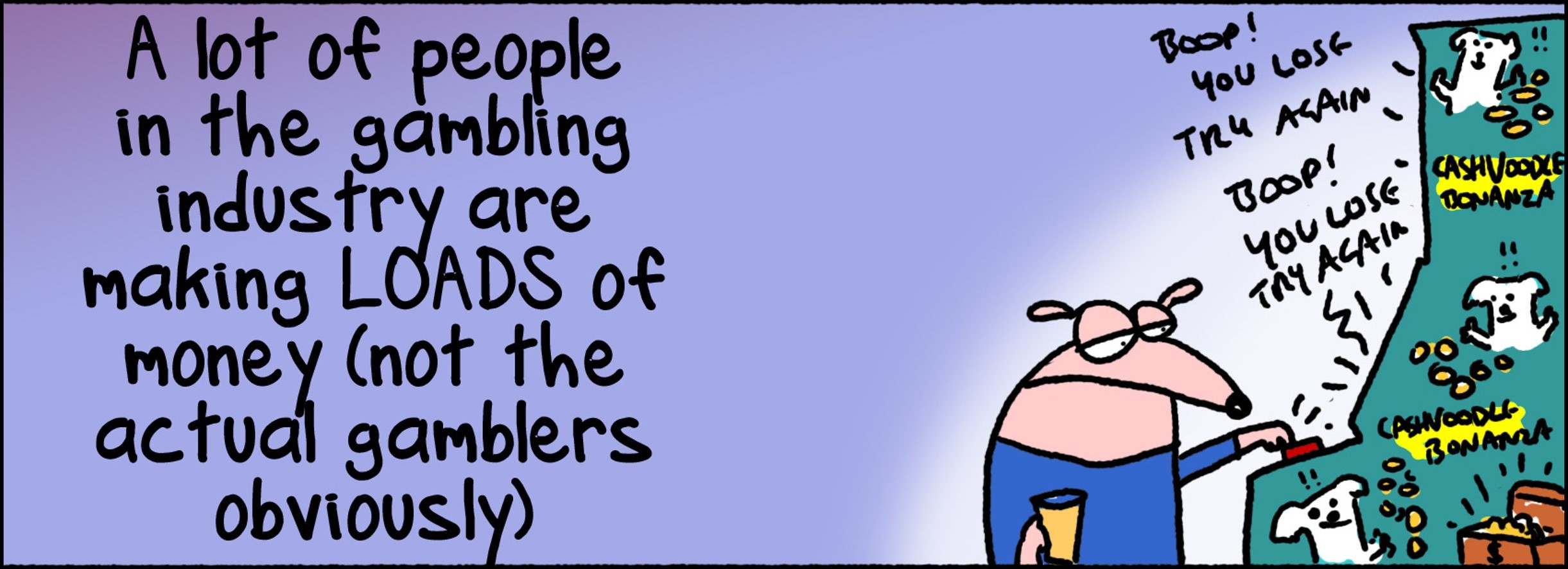 Gambling
Gambling
 Gambling
Gambling
| Home | Natural Family Living | Big Life Issues | Animal- Human- Angel |
Culture of Love | Solar Culture | Spirituality | Emotion |
Contact Bruce About PWP Links Photo Credits:- Skull and dice (earl53, Morguefile) Skull and many dice (earl53, Morguefile) Gambling cartoon (First Dog on the Moon, The Guardian; fair use, educational) |
 Gambling GamblingGambling is part of the death cult that is better known as capitalism/consumerism/materialism. Any organised way to gamble is designed to make you lose. Casinos, bookmakers, slot/fruit machines and lotteries are all designed to take your money. This is the reality. Can you see the danger? Gambling is a scam dressed up as Luck. A demon in sheep's clothing. Even if you are able to beat the system, they will quickly clamp down or expel you. If you are a serial loser, they will allow you to place bigger bets. Blaming individuals is a way that the gambling industry deflects from their greed and lack of responsibility. For example, it uses the term 'problem gambling' or 'problem gamblers'. It follows in the footsteps of Big Oil, Big Tobacco, Big Food and many more in placing heavy responsibility on individuals and avoiding the needed systemic change. The truth is that gambling has no place in a just, equitable society. I don't think there is such a thing as "responsible gambling". Maybe when charities use such systems for the greater good, there is some benefit. But why don't we organise it so that everyone's basic needs are met? See here! When people have a basic financial stability, surely the need to gamble will naturally fall away?  Quotes Heavy physical work, the care of home and children, petty quarrels with neighbours, films, football, beer, and above all, gambling filled up the horizon of their minds. To keep them in control was not difficult…. (George Orwell, 1984) The current business model [of the gambling industry] is built on addiction. Research shows that 86% of the industry’s online profits come from a 5% group of addicted or at-risk customers. It is clear the gambling industry cannot generate its ludicrous profits without causing harm. This horrific business model explains why online gambling products, such as slots and casino games, are designed to be highly addictive. The sounds, lights and false near-misses are carefully engineered to allow maximum amounts of dopamine to flood the brain to prolong the time spent gambling. The younger the brain, the worse the damage. Hundreds of millions of pounds are also spent yearly on wall-to-wall advertising, to ensure these dangerous products become normalised, both for adults and the next generation. Once you are on their marketing list, you will be inundated with messages and inducements to keep you coming back. Recovering gamblers have told me it’s like being stalked. (Liz Ritchie, The Guardian, posted 29 March 2023, accessed 15 June 2023) An early win is a well-documented technique known among gambling researchers and clinicians as a catalyst for addictive play, because it creates an early dopamine hit that gamblers are then eager to recreate, even as their subsequent losses mount. (Rob Davies, The Guardian, posted 14 July 2023, accessed 15 July 2023) What is more, for every “problem gambler”, six other people are affected, according to some estimates. On that basis, even a conservative analysis indicates that millions of people [UK population 69 million] are being harmed for the sake of industry profits. (Rob Davies, The Guardian, posted and accessed 15 June 2023) Gambling should be treated as a public health issue in the same way as drugs, alcohol and tobacco. (Don Foster, UK peer, chair of the Peers for Gambling Reform group, quoted in The Guardian, posted and accessed 28 July 2024) Like many [anti-gambling] advocates, she wants to see gambling reframed as a major public health issue rather than a recreational pursuit, given surveys have shown that nearly half of those engaging in the practice are at risk of, or already experience, its associated harms – such as financial hardship, family violence, depression, and suicide. Research suggests that a prohibition on advertising could be the first step in achieving that aim. (BBC, posted 26 August 2024, accessed 27 August 2024)  A frame from a First Dog on the Moon cartoon on gambling advertising
(The Guardian, posted 7 August 2024, accessed 12 August 2024; fair use, educational) Resources
|
Also see:- Money articles |
| Top of Page | Contact Bruce |